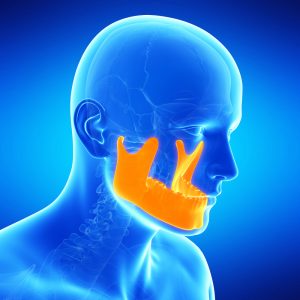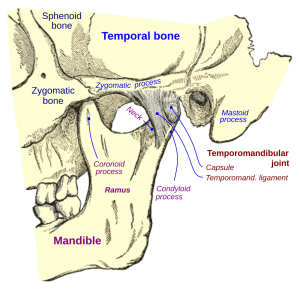Did you know facial numbness can mean something serious? It's a feeling that can scare you and mess up your day. Numbness in your face can happen for many reasons, from simple to serious health problems.
It's important to know why and how you feel numb. This helps you find the right help. It could be from nerve damage, a side effect of a disease, or something more. Spotting the signs early can lead you to the right care.
Key Takeaways
- Facial numbness can be a symptom of various health conditions.
- Identifying the causes is key for the right treatment.
- Spotting symptoms early helps you get medical help fast.
- There's expert care for finding and fixing the root cause.
- Knowing your condition is the first step to getting better.
What Is Facial Numbness?
Do you feel like your face doesn't feel anything? Facial numbness means you can't feel your face. It might go away or stay forever. It's a sign of something else that needs a doctor's help.
Many things can cause facial numbness. It could be nerve damage, a medical problem, or even a cold. Knowing why you feel this way is key to getting better.
How Facial Numbness Feels
Everyone feels facial numbness differently. Some feel like needles, others like nothing at all. It can happen in one spot or all over your face.
Differentiating Between Numbness and Tingling
Numbness means you can't feel anything. Tingling feels like needles. You might feel both or just one. Both can mean nerve problems, but they help doctors figure out what's wrong.
Telling your doctor about your feelings is very important. It helps them know what to do next.
Common Causes of Facial Numbness
Facial numbness is a sign that needs attention. It can come from many causes. Knowing these causes helps us find the right treatment.
Temporary Causes
Some causes of facial numbness are short-term. These include:
Stress and Anxiety
Too much stress and anxiety can make your face feel numb. This usually goes away when you feel better.
Cold Exposure
Being too cold can make your face numb. It gets better when you warm up.
Medical Conditions
Some medical issues can also cause facial numbness. It's important to find out what they are.
Multiple Sclerosis
Multiple sclerosis is a long-term disease. It can make your face numb, among other symptoms. Doctors use tests and exams to diagnose it.
Stroke and TIA
A stroke or TIA can make one side of your face numb. It's important to get help right away if you think you're having one.
Nerve-Related Causes
Nerve problems can also cause facial numbness. These issues can make your face feel numb, painful, or different.
Bell's Palsy
Bell's palsy makes one side of your face weak or numb. It's not always clear why it happens, but it's related to nerve inflammation.
Trigeminal Neuralgia
Trigeminal neuralgia is a long-term pain condition. It affects the nerve that carries face sensations to your brain. While it's known for pain, it can also cause numbness or different feelings.
Recognizing Facial Numbness Symptoms
It's important to know the signs of facial numbness. This can help you decide when to see a doctor. Facial numbness can happen alone or with other feelings that might mean something serious.
Common Physical Sensations
Facial numbness can feel like you have no feeling at all. Or it might feel like pins and needles. You might also feel tightness in your face. These feelings can come and go, or stay for a while, on one or both sides of your face.
Accompanying Symptoms to Watch For
There are other signs to look out for too. These include changes in vision, trouble speaking, and headaches or pain.
Vision Changes
Vision changes can be anything from blurry vision to seeing double. If you notice these changes with numbness, get medical help right away.
Speech Difficulties
Slurred speech or trouble saying words can happen with numbness. This combo might mean a serious problem.
Headaches and Pain
Headaches or pain in your face, neck, or head can go with numbness. The pain can be mild or very bad. It might mean you need to see a doctor.
If you have numbness and any of these symptoms, see a doctor. They can find out what's wrong and help you feel better.
When to Seek Medical Care for Facial Numbness
Knowing when to get medical help for facial numbness is key. It can help you get better faster. Facial numbness can mean different things, some serious.
Emergency Situations
If you have facial numbness and other bad symptoms, get help fast. Symptoms like trouble speaking or weakness on one side are serious. They might mean you're having a stroke.
Also, if you see your vision change or have trouble swallowing, go to the emergency room. Facial numbness with these signs is not okay.
Making an Appointment with a Specialist
If your numbness doesn't go away or keeps coming back, see a specialist. Start with your family doctor. They can send you to someone who knows more.
When you make your appointment, tell your doctor everything. Say when it started and what makes it better or worse.
What to Expect During Your Doctor's Visit
Your doctor will check you carefully. They will look at your face and any other symptoms you have.
Diagnostic Tests
Your doctor might want to do tests like MRI or CT scans. These can find problems like nerve damage or tumors.
Questions Your Doctor May Ask
Be ready to talk about your health history. Tell them about past illnesses or surgeries. They might ask about your family's health too.
Getting medical help for facial numbness is important. It helps find and fix the problem. Knowing what to do and what to expect can help you stay healthy.
Finding Relief from Facial Numbness: You're Not Alone
Waking up with facial numbness or feeling it develop gradually can be incredibly unsettling. That strange, disconnected feeling in your face can make simple activities like eating, speaking, or even smiling feel different and concerning.
If you're dealing with facial numbness, know that you're not alone in this experience. Dr. Yount at Raleigh Facial Pain Center understands how distressing these symptoms can be. He's spent over 25 years helping people just like you navigate facial pain and numbness conditions, particularly those involving the trigeminal nerve.
As a board-certified Orofacial Pain Specialist, Dr. Yount takes time to listen to your concerns and work with you to understand what's happening. Every patient's situation is unique, and he believes in creating treatment approaches that make sense for your specific needs and lifestyle.
Living with facial numbness doesn't have to be your new normal. If these symptoms are impacting your daily life, contact us today. Let's work together to help you feel more like yourself again.



